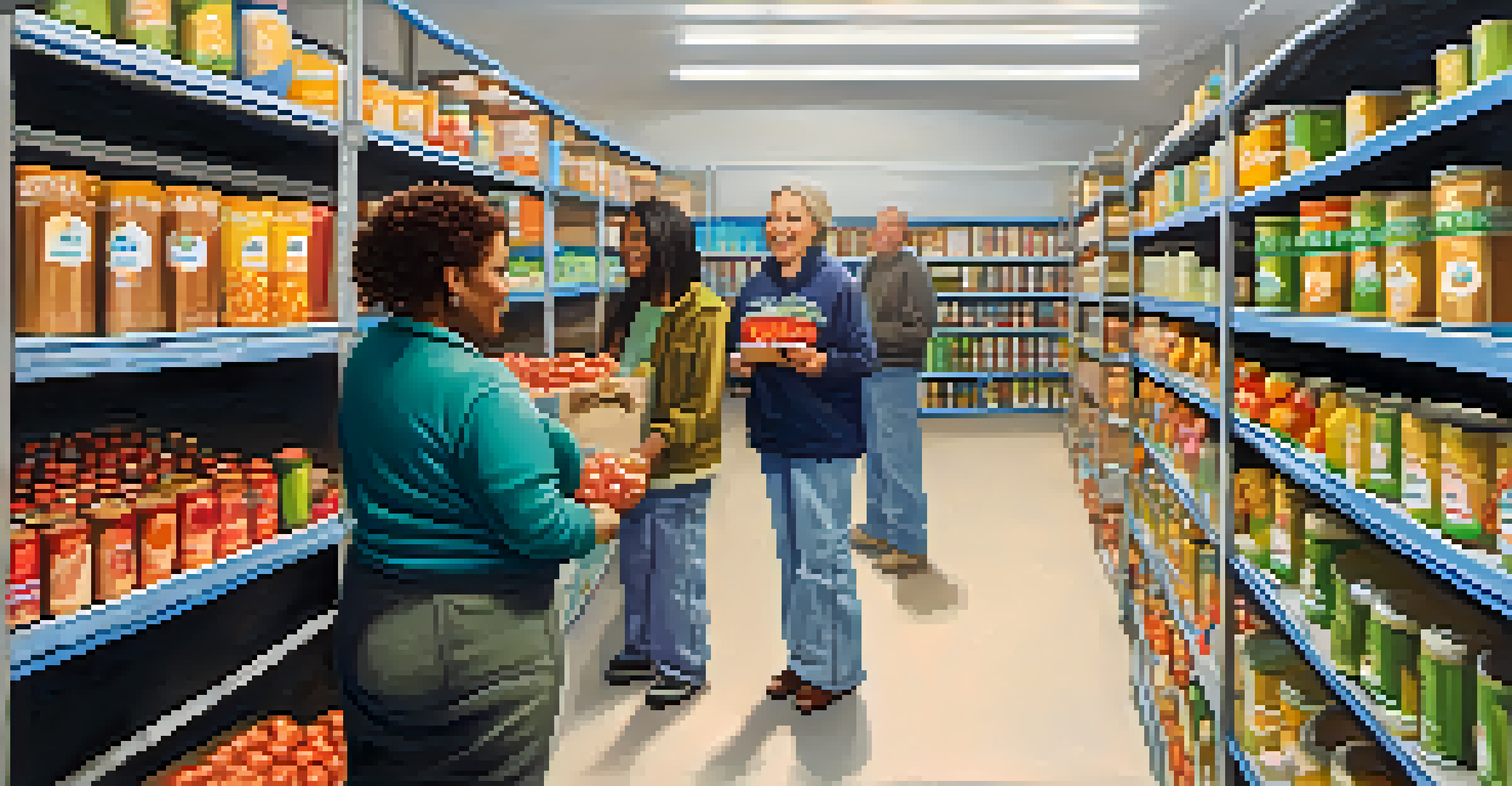Exploring Poverty's Impact on Kansas City Communities and Youth

Defining Poverty in Kansas City: A Local Perspective
Poverty is more than just a lack of money; it encompasses inadequate access to resources, education, and opportunities. In Kansas City, many families struggle to make ends meet, with a significant portion living below the poverty line. This situation creates a ripple effect, impacting not only individuals but entire neighborhoods.
Poverty is the worst form of violence.
The U.S. Census Bureau reported that around 18% of Kansas City's residents live in poverty, a statistic that highlights the urgency of addressing this issue. Many communities are particularly affected, with some areas experiencing rates exceeding 30%. Understanding these numbers helps us grasp the real challenges faced by many families in the city.
Moreover, poverty is often intertwined with other social issues, such as crime and health disparities. This complex web makes it essential to approach the topic of poverty holistically, considering its various dimensions and the unique experiences of those affected.
The Educational Divide: How Poverty Affects Learning
Education serves as a crucial pathway out of poverty, yet many children in Kansas City face significant barriers to learning. Schools in lower-income neighborhoods often lack the resources and funding necessary for quality education. This disparity can lead to lower graduation rates and limited future opportunities for these students.

For example, children from impoverished backgrounds may struggle with basic needs like food and shelter, making it challenging to focus on their studies. Furthermore, schools in these communities may not have access to advanced courses or extracurricular activities, which are vital for personal and academic growth. Without these opportunities, the educational divide only widens.
Poverty Affects Kansas City Families
Many families in Kansas City struggle with poverty, facing barriers to resources, education, and opportunities.
Ultimately, this educational gap perpetuates the cycle of poverty, making it harder for future generations to break free. Addressing these inequities requires community involvement and systemic changes to ensure all children, regardless of their background, receive a fair chance at success.
Health Challenges: The Toll of Poverty on Well-being
Poverty is closely linked to numerous health challenges, affecting both physical and mental well-being. In Kansas City, low-income families often struggle to access quality healthcare, leading to untreated conditions and a lower overall quality of life. Additionally, these families may not have the means to afford healthy food or safe living environments, further exacerbating health issues.
Education is the most powerful weapon which you can use to change the world.
For instance, neighborhoods with higher poverty rates often have limited access to grocery stores that offer fresh produce. This lack of resources can lead to poor nutrition, contributing to obesity and other related health problems. Similarly, children growing up in high-stress environments may face mental health challenges that go unaddressed due to stigma or lack of resources.
The impact on youth is particularly concerning, as health issues can hinder their development and academic performance. By prioritizing health initiatives and access to care in impoverished communities, Kansas City can foster healthier environments for its youngest residents.
Community Resources: Support Systems for Families
Fortunately, Kansas City is home to numerous organizations and programs dedicated to supporting families in need. From food banks to healthcare services, these resources provide essential assistance to those struggling with poverty. Such programs play a vital role in alleviating the immediate effects of economic hardship.
For example, local nonprofits work tirelessly to provide meals, clothing, and educational support to children and families. These organizations not only address immediate needs but also aim to empower individuals through job training and financial literacy programs. By equipping families with the tools they need, these initiatives foster long-term resilience.
Education Gap Perpetuates Poverty
Children in low-income neighborhoods often lack access to quality education, leading to lower graduation rates and ongoing cycles of poverty.
Community engagement is crucial in this endeavor. By volunteering time or resources, residents can help strengthen these support systems, creating a network of care that uplifts those in need and fosters a sense of belonging.
The Role of Local Government in Addressing Poverty
Local government plays an essential role in addressing poverty through policy and community programs. In Kansas City, initiatives aimed at economic development, affordable housing, and education funding are vital for improving the lives of residents. By prioritizing these areas, the government can create a more equitable environment for all citizens.
For instance, affordable housing policies can help ensure that families do not have to choose between paying rent and meeting basic needs. Additionally, investments in public transportation can expand access to job opportunities, enabling individuals to secure stable employment. Such efforts can make a significant difference in the lives of those living in poverty.
Moreover, collaboration between local government and community organizations can amplify these efforts. By combining resources and expertise, stakeholders can develop comprehensive strategies that address the root causes of poverty and promote sustainable change.
Youth Empowerment: Building Resilience and Future Leaders
Empowering youth is a critical component of combating poverty in Kansas City. Programs that focus on leadership development, mentorship, and skill-building can help young people overcome challenges and envision a brighter future. By investing in their potential, communities can nurture the next generation of leaders.
For example, initiatives that provide mentorship opportunities connect youth with positive role models who can guide them through life's challenges. These relationships foster confidence and resilience, equipping young people with the tools they need to succeed. Additionally, skill-building workshops can help them develop practical abilities that will serve them in their careers.
Community Support is Essential
Local organizations and government initiatives play a crucial role in providing resources and support to families in need, fostering long-term resilience.
By focusing on youth empowerment, Kansas City can break the cycle of poverty and create a more vibrant, engaged community. When young individuals believe in their potential and have access to opportunities, they can drive positive change for themselves and their neighborhoods.
A Call to Action: Supporting Kansas City Communities Together
Addressing poverty in Kansas City requires collective action from individuals, organizations, and local government. Each of us has a role to play in creating a more equitable environment for all residents. Whether through volunteering, advocacy, or simply raising awareness, every effort counts toward making a difference.
Community involvement is essential; when residents come together, they can tackle complex issues more effectively. Supporting local nonprofits and initiatives not only helps those in need but also strengthens the community as a whole. By fostering a culture of collaboration and compassion, we can create lasting change.

In conclusion, let us remember that poverty is not an isolated issue but one that affects us all. By working together, we can build a Kansas City where everyone has the opportunity to thrive, ensuring a brighter future for generations to come.